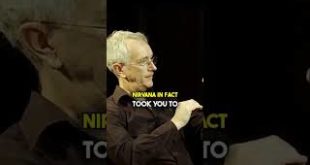Private Sector Debt Explained Simply
Read More »Why I’m an ANTI Economist.
Why I'm an ANTI Economist.
Read More »Purgatory or Nirvana?
Purgatory or Nirvana?
Read More »Climate Investors Seek Sustainable Farming
Climate Investors Seek Sustainable Farming
Read More »Forbidden Financial Freedom?
Forbidden Financial Freedom?
Read More »Quantitative Easing’s Big Misstep.
Quantitative Easing's Big Misstep.
Read More »Capitalism’s Evolution: Industrial to Financial
Capitalism's Evolution: Industrial to Financial
Read More »Climate Change’s Impact on American Industries
Climate Change's Impact on American Industries
Read More »Unveiling the Hidden Power of Government Debt
Unveiling the Hidden Power of Government Debt
Read More »Why SOMETIMES I Have To Agree…
Why SOMETIMES I Have To Agree...
Read More » Steve Keen’s Debt Watch
Steve Keen’s Debt Watch










